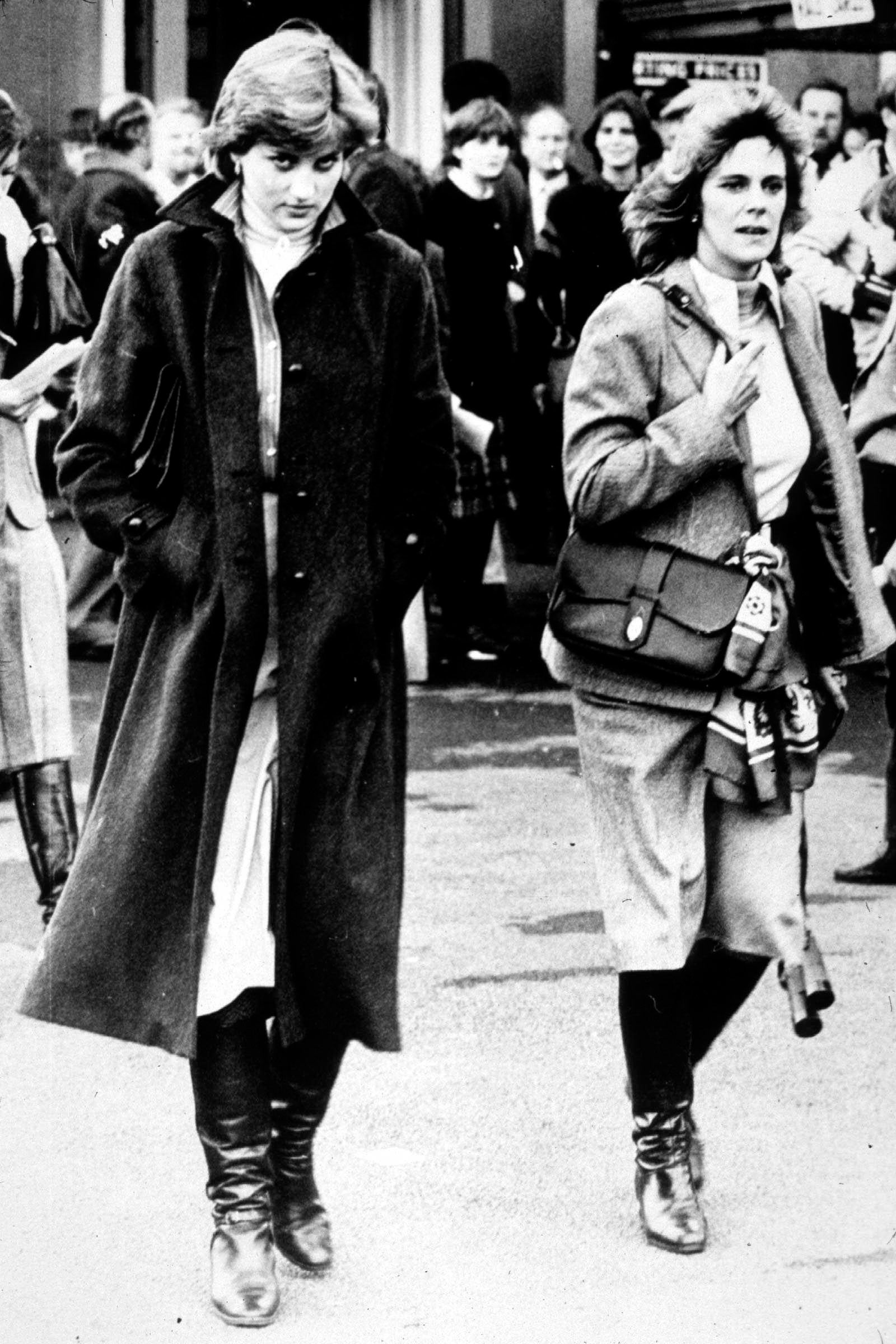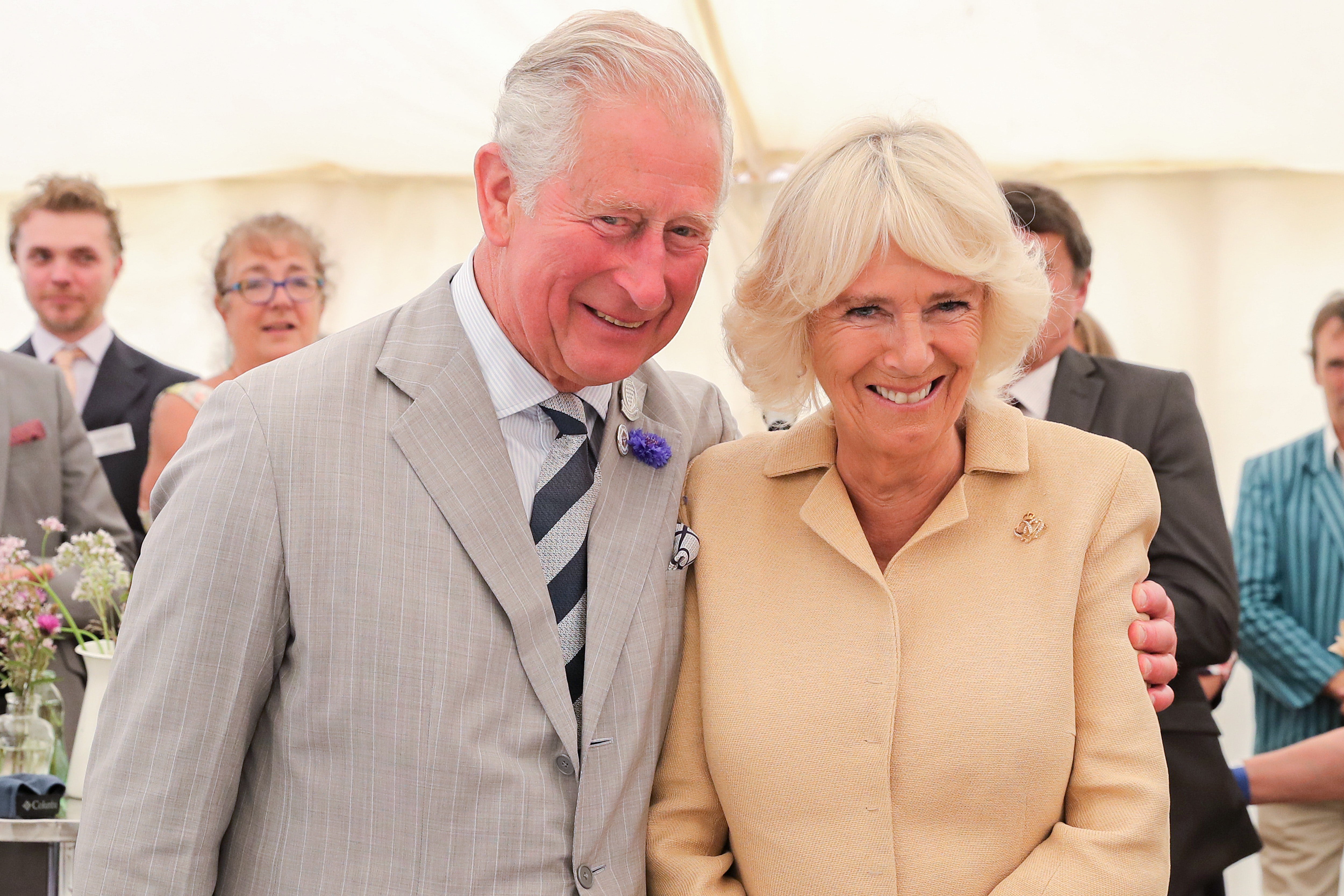‘Evil temptress’ turned ‘nation’s grandmother’?: Camilla has been a PR victory for the beleaguered royals
Once thought to be Britain’s most hated woman, Queen Consort Camilla Parker Bowles has had quite the redemption arc. Yet, asks Laura Hampson, will she ever truly be liked?


In January 1993, a tampon shook the world. A month after Charles and Diana publicly split, details of an intimate exchange between the future King and Camilla Parker Bowles were leaked to the press. Their conversation, recorded in 1989 when both were married to other people, included titillating titbits such as “I want to feel my way along you, all over you, up and down you and in and out...” Another involved Charles’s unexpectedly bawdy urge to be reincarnated as one of Camilla’s tampons. Camilla was just as game, suggesting he could come back as the whole box, “so you could just keep going”. Royal levels of filth.
Recreated in the new season of The Crown – which arrived on Netflix on Wednesday – what came to be known as “tampongate” planted the seeds for how Camilla would be viewed by the British public for the ensuing decade. The other woman. The mistress. The homewrecker. Camilla was effectively cancelled overnight. The flames were further fanned by Diana’s notorious 1995 Panorama interview with Martin Bashir, when the late royal memorably said that there were “three people” in her marriage.
“People felt outraged at their blatant disrespect for Diana, staunch loyalists even questioning Charles’s ability to rule,” royal expert Tiwa Adebayo tells me. “Being royal, of course, Charles was shielded from the worst of the vitriol. [That] was reserved for the ‘evil temptress’ who had led our future king astray.”
So how did the most hated woman in Britain – who was always framed in opposition to “The People’s Princess” – become so widely embraced in 2022? According to an ongoing YouGov ranking, Camilla is equal with the King as the fifth most popular British royal. Only the late Queen Elizabeth II, the Prince and Princess of Wales, and Princess Anne rank above her. For context, the Duke and Duchess of Sussex rank ninth and 13th respectively.
“The rehabilitation of Camilla Parker Bowles’s reputation has been The Firm’s single greatest PR project to date,” Adebayo says. “It’s taken the better part of 25 years, but it’s clear that the tides have well and truly turned.”
The tide shift has been building for a while, but it was cemented at the beginning of this year when Queen Elizabeth II announced that Camilla would be known as Queen Consort upon Charles’s accession. Her Majesty doubled down on this approval in June, when Camilla was installed as a Royal Lady of the Order of the Garter. It’s an honour rarely given to those who marry into the royal family.
“The Queen’s declaration that Camilla would one day be Queen Consort was a huge moment for her, putting to bed – once and for all – the ghost of her husband’s ex-wife,” Adebayo explains. She adds that the goal for the royal family has been to “quietly establish Camilla in people’s minds as ‘queenly’ and likeable without them noticing”.

Before the public could accept Camilla, however, she first had to be accepted by The Firm. “Camilla’s public redemption only started in earnest after she’d proven herself in private to the royal family,” Adebayo says. “The Queen Mother famously refused to receive her as Charles’s official partner. Even Her late Majesty [the Queen] remained decidedly cold for decades.”
For the Queen, Camilla was a long-standing symbol of Her Majesty’s “annus horribilis”, the year when three of her children’s marriages crumbled and Windsor Castle caught fire. Yet Camilla’s dedication to the monarchy, her ability to steer clear of controversies, and the fact that she and the King seem to genuinely love each other, won over both the Queen and the public.

“Over time, through plugging away at the most unglamorous royal engagements, distinguishing herself as designated ‘Charles-whisperer’ and proving her loyalty to the royal family, she has succeeded in making herself inoffensive, respected but never adored,” Adebayo says. “She has used the benefit of time to her advantage, staying in the shadows long enough for people to forget the beginnings of her royal story.”
Benjamin Atkinson, a public relations manager at reputation management consultancy Igniyte, suggests that one reason for the public’s shifting perception of Camilla could be her “grandmotherly persona”. “In many ways Camilla has taken over the ‘grandmother’ mantle from the late Queen Elizabeth II, which will soften up public opinion on her,” Atkinson says. “That humane element of relating to your own grandmother has perhaps kicked in a little from the public.” He adds that reputation is so important for the royals because scrutiny will always be there. “They need to be seen to behave in an exemplary way due to what the royal family means to a lot of people.”

With Prince Andrew being accused of sexual assault (something he has vehemently and continuously denied), and Prince Harry set to release a tell-all memoir, Camilla is now considered an asset rather than a blemish among royal circles. But even when we look back now – through a more progressive lens, and without the high tabloid drama of that era – we realise that the way Camilla was treated was, in fact, very uncool. Her greatest fault, if any, was falling in love with the future King of England. And if you look at the “tampongate” recording from a different and less puritanical perspective, isn’t it just audio of two middle-aged lovers acting like teenagers in private?
For the King and Camilla, it was always a case of the right person at the wrong time. While this doesn’t justify how the royal family treated Diana, it also doesn’t justify the lasting stain it left on Camilla’s reputation. Camilla, for her part, has kept her head down and integrated herself into the royal family almost seamlessly since she wed the King. She may never truly be the nation’s grandmother, or even the queen of our hearts. But to go from being Britain’s most hated woman to someone we’re – at worst – largely indifferent to is a major victory. That alone deserves some respect.
Join our commenting forum
Join thought-provoking conversations, follow other Independent readers and see their replies
Comments


Bookmark popover
Removed from bookmarks